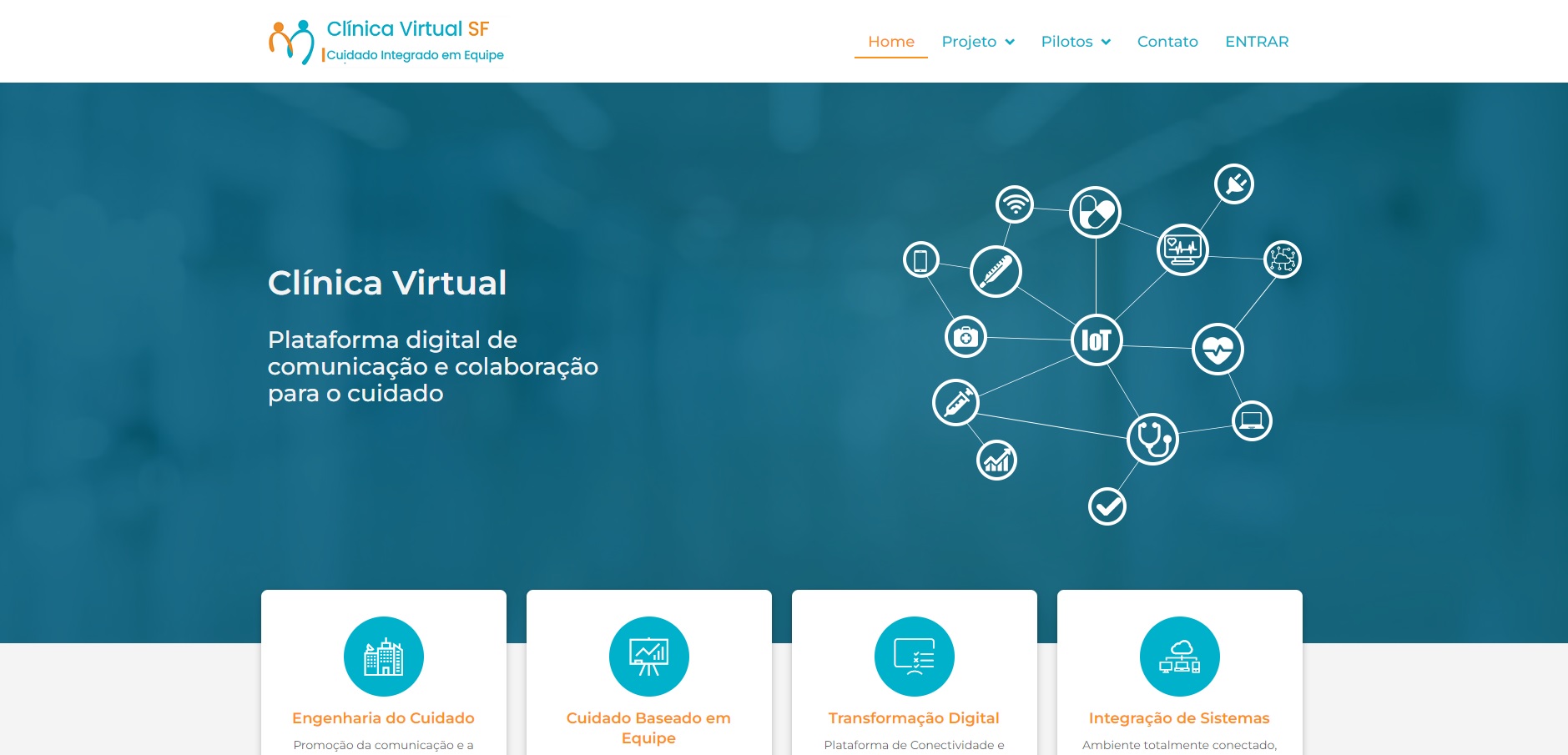Virtual platform developed by Work Group seeks to promote integrated care at different levels of health care
Developing and customizing a platform as a virtual care solution that enables healthcare providers to deliver high-quality, cost-effective clinical care remotely. This was the objective of the WG Digital Collaboration Platform – Integrated Care Network (GT-PDC-RCI), selected from RNP's R&DI Advanced Services Program in 2022.
The WG's proposal for developing this solution, also called Virtual Clinic – Integrated Care in a Team, is justified by the observation of the lack of tools for this purpose for assistance in the health area.
According to the coordinator of the WG and professor at the Center for Studies in Telecommunications at PUC-Rio (CETUC), Marlene Pontes, part of the care fragmentation is explained by the lack of tools to establish collaboration and communication between professionals in the different levels of healthcare and allow the sharing of information about patients, especially in the transition of care. An example of this is when the patient moves from one team to another due to the need for care in another specialty, or when the patient is no longer treated by health professionals and starts to be cared for by caregivers, family members or people responsible for the patient.
“Another factor that contributes to the fragmentation of care is the use of non-integrated digital health applications that hinder a shared view of health information at different levels of care”, explains the coordinator. “The integration of these applications is complex both from a technological point of view and from a business point of view. This problem is observed in both public and private health systems”.
Solution promotes integration in end-to-end team care
In this sense, the Virtual Clinic – Integrated Team Care platform will integrate, in a single environment, digital applications existing in health establishments, such as telemedicine and telehealth, electronic medical records and call center, with communication and collaboration resources – for example, integration with WhatsApp, video and voice services and exchange of information between the participants of the care team (patients, family members, physicians, nurses and other healthcare professionals).
For the integration to be possible, the Communication Platform as a Service architecture was adopted, which allows the effectiveness of digital health applications, establishing effective collaboration and secure communication between physicians, nurses, social workers and other health professionals and patients and improving users' digital experience.
A business model is also being built for digital platforms considering, on the one hand, customers in the target market - in the RNP System (RUTE Hospitals and Municipal Health Systems) and outside it (Private Hospitals) - and on the other hand, producers of digital health applications that can integrate their products and applications to the Platform (WG's, RNP, developers of Electronic Medical Records, RUTE Startups Nuclei of Applications for Digital Health) with a differentiated value proposition for each one of them.
The project is carried out at the Pontifical Catholic University of Rio de Janeiro, PUC-Rio, by a team made up of researchers, professors, physicians, specialists, engineers and technicians from departments and laboratories in the areas of Electrical and Computer Engineering and the collaboration of a consultant physician, Dr. Leonardo Frajhof, as support for decisions related to the medical questions and procedures that are addressed in this project. PUC-Rio has a partnership with Startup Engenharia do Cuidado. Approved for phase 2, it is currently reviewing the Business Model and deploying the platform to potential customers (Early Adopters).
Some of the platform's possibilities:
- Allows you to provide and manage digital health services, such as, for example, virtual consultations – Teleinterconsultations and Teleconsultations.
- With the help of a virtual assistant, Rita, healthcare professionals and patients will be able to easily request, schedule, carry out and manage virtual consultations, eliminating tasks that consume time and do not add value to the service.
- The Virtual Office works integrated with other applications such as, for example, an intelligent omnichannel call center, secure messaging and agenda.
- Records of virtual care journeys, optionally, can be stored on a FHIR server and can be shared with participants and interoperate with the National Health Data Network, providing SUS users with the best experience of the connected care journey, no longer being just an opportunity to replace face-to-face assistance.
Visit the project website to learn more.

